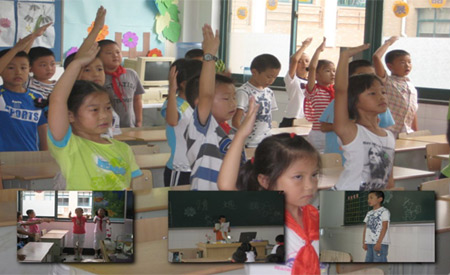Overstaffed classroom leadership causes concern
 |
|
Pupils in Xihu Primary School in east China's Hangzhou City votes class leaders by a show of hands. [File photo] |
In China's schools, each class usually has a committee composed of outstanding students and headed by a monitor to help teachers. But the pupils of the 1st class of the fourth grade of Qianchuan No. 6 Primary School in central China's Hubei Province have significantly expanded their leadership ranks. It boasts one chief class monitor, one commissary in charge of sports and recreational activities, four commissaries in charge of study, ten "on-duty" class monitors, and 16 team leaders. That's 32 of 63 students who since the spring semester began ascended to leadership positions of some sort or another.
The idea of promoting a multitude of class leaders was put forward by Wang Jianwei, a teacher at the school. Some parents felt that holding a position would encourage the fourth graders to behave more like adults and asked Wang to make more positions available.
Wang says the high number of "leaders" has made the classroom a bit overstaffed, but noted that no matter how humble the position the children feel proud and learn to take responsibilities.
Is this necessary? Should it be encouraged? The issue provoked a hot debate online. Many netizens support Wang's system, believing that being a class leader enhances children's sense of serving the public and boosts their confidence.
But some worry that it results in vanity. Also, what about the students not selected—won't they feel discouraged? Some even suggested that this system would cause the children to become obsessed with power.
As the debates continues, it is important to remember that regardless of how many "leaders" a classroom has, the priority is teaching children to get the most out of their talents and abilities.
 0
0 






